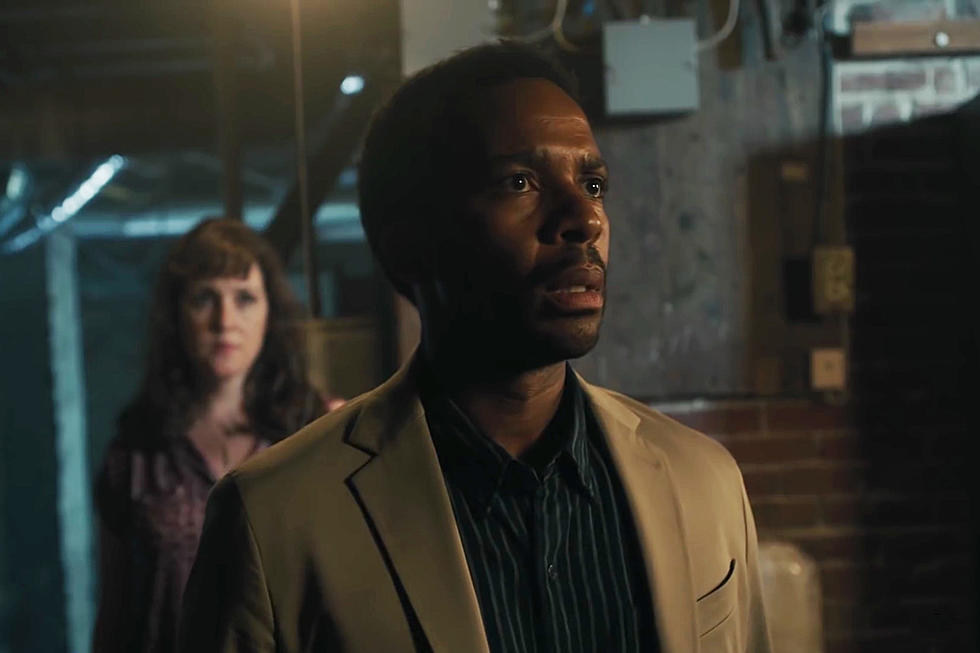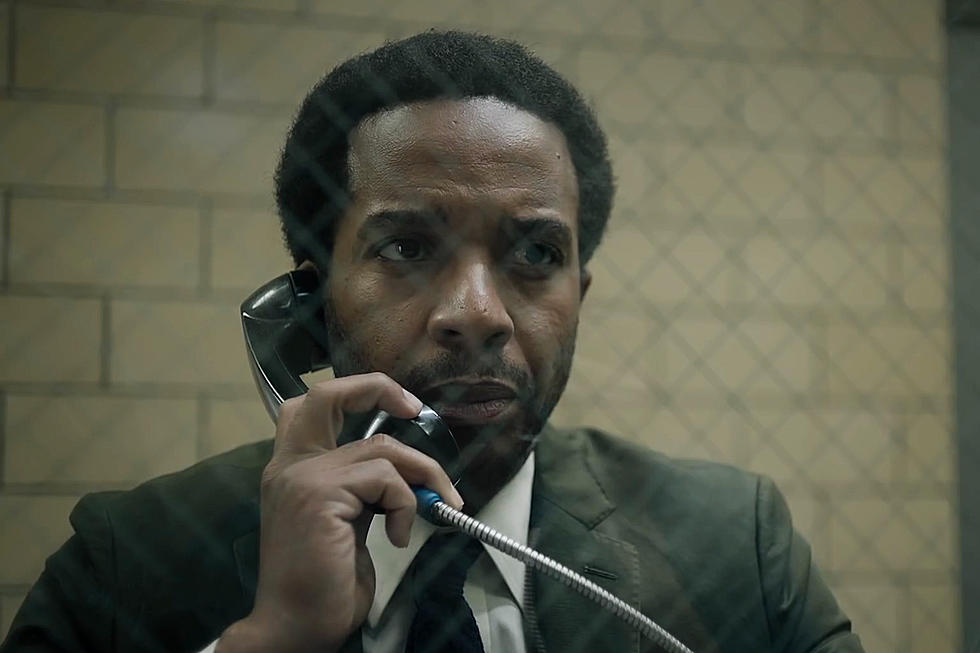
Reel Women: ‘Hello I Must Be Going’
Director (and actor) Todd Louiso follows up 'Love Liza' and 'The Marc Pease Experience' with 'Hello I Must Be Going,' based on a script from first-time scribe Sarah Koskoff. The film follows Amy, a woman going through a divorce who is forced to move back in with her parents in suburban Connecticut, when she meets -- and falls for -- a much younger man. While the film comes close, but never quite manages, to punch you in the gut, Melanie Lynskey's portrayal of Amy is absolutely resonant.
Amy isn't your typical regressive female lead -- she's not outright angry or self-destructive in ways that are overtly obvious. She lives with her parents, sure, but the details are what make Amy's character relatable, relieving the viewer from identifying through the honesty in over-the-top humor or heightened reality. 'Hello I Must Be Going' is a film that is small enough to feel tangible. Amy sleeps in late, wears the same t-shirt over and over, and can barely convince herself to go out and shop for a new outfit to help impress her father's prospective clients, whose promise of a big money-making deal will allow her dad to retire and her parents to travel the world together, alone.
Blythe Danner plays Amy's mother and it's worth noting her WASPy performance, where she finds the humanity in a woman who is too concerned with the material. She is Amy's would-be future, and while her criticisms of her daughter are harsh and at times, unsettling, there's a kernel of truth and hints of a mother who wants better for her daughter. Amy was married to a celebrity lawyer, and she was well cared for by her husband, spending her time remodeling their home and planning nice parties for his colleagues and clients. She abandoned her photography and her literature degree -- life skills that even Amy admits would have never earned her much money in the career world -- and let herself become a homemaker and attentive wife. Throughout the film you wonder what degrees or education her mother has because she seems to be doing much of the same, fretting over valuable pieces of art and remodeling her own home.
When Amy meets the 19 year-old son (Christopher Abbott of 'Girls') of her father's prospective client, the two immediately click, though Amy is keenly aware that their "relationship" can never gel into something more. Jeremy is a sensitive young man who pretends to be gay because his therapist mother just assumed he was and it's easier to allow her to believe it so she can continue being accepting of him and thinking she's a good mom. His affections for Amy are so genuine and heartbreaking, but they never teeter over into uncomfortably obsessive territory -- there's no sense that their feelings for each other are particularly uneven, as so often one person in a relationship seems to care a little more than the other.
But Amy resists Jeremy in some way because he's good to her and because we, to borrow the line from another fine film, 'The Perks of Being a Wallflower,' accept the love we think we deserve. Amy was too blind to know that she was unhappy in her marriage and believes she had the rug pulled out from underneath her when her husband dumped her for another woman. She therefore can't afford Jeremy's love because she hasn't yet accepted the subjective currency from her divorce -- the lessons we learn when a relationship dissolves; the stuff that helps us transform and grow into better people, regardless of who was at fault.
Lynskey gives an incredibly genuine performance, herself the human embodiment of the film's embrace of that which is simple. She is a beautiful actress, absent of the kind of glamour that would distract from her portrayal of Amy, the meandering and willfully listless divorcee. Lynskey proffers such a kind, gentle nature, but never feels so fragile that she might break from a passing breeze. You don't feel pity for her, which is crucial, but you hope that she will do and be better for herself because she is such a well-meaning person, but she carries the obliviousness and denial of a woman in a regressive state of arrested development, making her the perfect companion for a 19 year-old man who can barely bring himself to admit to his mother that he's straight and hates acting.
The real theme in 'Hello I Must Be Going' resides in the casually helpful words from Amy's dad: "What can you do?" It's such a simple, but wise platitude. We spend too much time worrying about the things, people, and feelings of others that we cannot control, when it would be more productive to worry about the things we can control and do. With Amy, though, it's more about what she wants to do, and that's something she's barely able to teach herself through the haze of a comfortable old t-shirt and watching old Marx Brothers movies late at night (the film borrows its title from a song sung by Groucho Marx). Amy doesn't get really self-destructive until she (literally) falls flat on her face and wonders aloud, "Where is bottom?!" It's only when we start asking ourselves questions like, "what can you do?" and "what do I want?" that we can start to pick up the pieces when we think our lives have fallen apart.
It's a simple notion, and while 'Hello I Must Be Going' never quite provides some grandiose, emotional display of life-altering revelation, it finds the beauty in effective simplicity -- in presenting a life that's too close to home.
More From ScreenCrush









